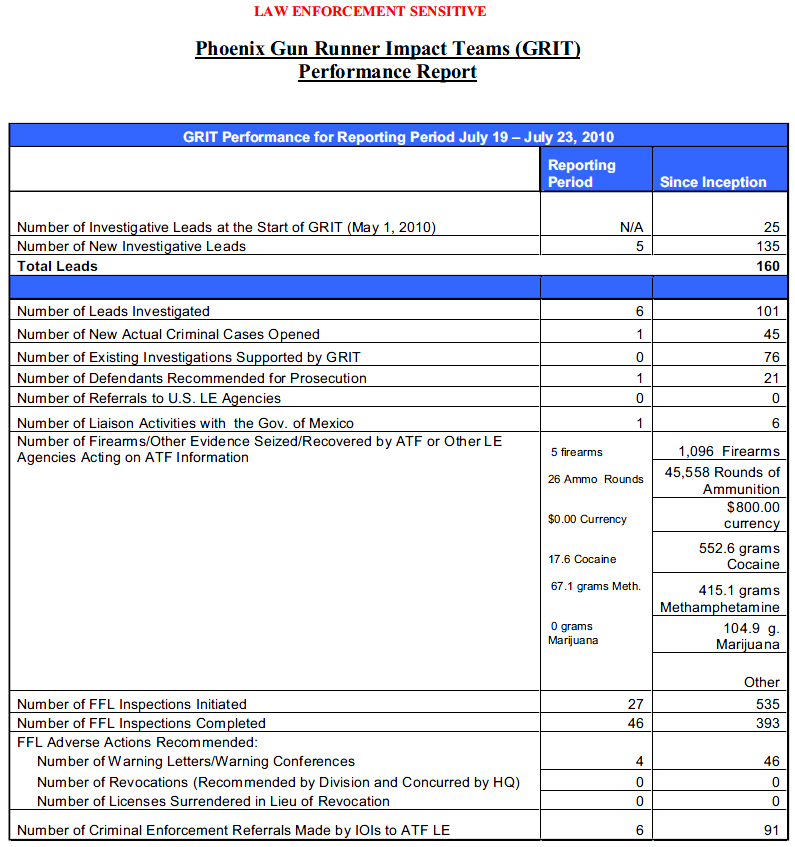Maybe the whistleblowers will receive some vindication like Sharyl Attkisson.
Obama relents in fight over Fast and Furious documents
Politico: Four years after asserting executive privilege to block Congress from obtaining documents relating to a controversial federal gun trafficking investigation, President Barack Obama relented Friday, turning over to lawmakers thousands of pages of records that led to unusual House votes holding Attorney General Eric Holder in contempt in 2012.
In January, a federal district court judge rejected Obama’s executive privilege claim over records detailing the Justice Department and White House’s response to Operation Fast and Furious, a Bureau of Alcohol, Tobacco, Firearms and Explosives investigation that may have allowed as many as 2,000 firearms to pass into the hands of Mexican drug cartels.
In her ruling, U.S. District Court Judge Amy Berman Jackson did not turn down Obama’s privilege assertion on the merits. Instead, she said authorized public disclosures about the operation in a Justice Department inspector general report essentially mooted the administration’s drive to keep the records secret.
Both sides had until midnight Friday to file an appeal. Instead, the Obama administration turned over a set of documents to the House Oversight and Government Reform Committee.
“In light of the passage of time and other considerations, such as the Department’s interest in moving past this litigation and building upon our cooperative working relationship with the Committee and other Congressional committees, the Department has decided that it is not in the Executive Branch’s interest to continue litigating this issue at this time,” Justice Deparment legislative liaison Peter Kadzik wrote in a letter Friday to House Oversight Chairman Jason Chaffetz (R-Utah).
Justice Department spokesman Patrick Rodenbush confirmed that the administration does not plan to appeal. He argued that Jackson’s ruling validated Obama’s initial claim of privilege.
“The Department of Justice is pleased that the district court … continued to recognize that the deliberative process component of the executive privilege exists and was a valid basis for the Department to withhold certain documents when requested by the House in 2011. Although the Department disagrees with the district court’s conclusion that the privilege was overcome in this particular case by disclosures and statements made in other contexts, the Department has decided not to appeal the court’s judgment and has provided a production of documents to the House Committee on Oversight and Government Reform,” Rodenbush said in a statement.
While the House largely won in the January decision, it did file an appeal earlier Friday afternoon, apparently unaware of the administration’s plans to comply with the judge’s order. The appeal suggested that House leaders were dissatisfied with aspects of Jackson’s rulings that narrowed the set of documents the administration had to turn over.
“As we’ve long asserted, the Committee requires and is entitled to these documents,” Chaffetz said in a statement. “They are critical to the Committee’s efforts to complete meaningful oversight. The Committee has a duty to understand and shine light on what was happening inside DOJ during the time of this irresponsible operation. Yet DOJ has obstructed our investigative work for years.”
After getting word that the Justice Department was turning over records, Chaffetz updated his statement, indicating that the House plans to press its appeal to get records beyond the ones the administration is providing.
“Today, under court order, DOJ turned over some of the subpoenaed documents. The Committee, however, is entitled to the full range of documents for which it brought this lawsuit. Accordingly, we have appealed the District Court’s ruling in order to secure those additional documents,” Chaffetz said.
Guns sold by dealers or informants used in the ATF operation wound up at numerous crime scenes in Mexico and the U.S. In December 2010, two of the weapons were found at the scene of the murder of a Border Patrol agent in Arizona.
Obama’s privilege claim in the Fast and Furious fight was broad-ranging, seeking to cover not only internal deliberations about how to respond to congressional inquiries but also discussions about media strategy related to the congressional probes.
The June 2012 claim in the Fast and Furious case was the only formal assertion of executive privilege by Obama to try to defeat a congressional demand for records or testimony, though the administration has raised executive privilege concerns when declining to comply with other congressional inquiries. Most of those were resolved through negotiations. The administration has also asserted executive privilege in response to a variety of Freedom of Information Act lawsuits.



